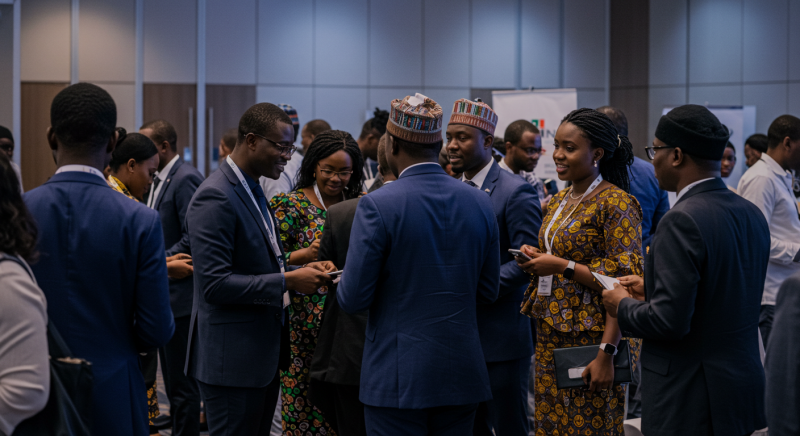Are you a Nigerian professional dreaming of building your career in one of Asia’s most prosperous nations? The thought of leaving everything familiar behind to immigrate to Singapore can feel overwhelming, but thousands of Nigerian professionals have successfully made this life-changing move. From the bustling financial district of Marina Bay to the innovative tech hubs of Jurong East, Singapore offers unparalleled opportunities for ambitious professionals ready to take their careers to the next level.
The path to immigrate to Singapore as a Nigerian professional has become more structured yet competitive in 2025, with new requirements and updated frameworks that favor skilled talent. Whether you’re a financial analyst managing portfolios worth millions, an engineer designing tomorrow’s infrastructure, or a tech specialist building the next breakthrough application, Singapore’s Employment Pass (EP) system offers a clear pathway to establish your professional life in the Lion City.
Key Takeaways
- New 2025 salary requirements: Minimum S$5,600 monthly for general sectors, S$6,200 for finance professionals
- COMPASS scoring system: All EP applications must achieve 40 points minimum
- High demand sectors: Finance, engineering, and technology professionals have excellent prospects
- Processing timeline: 2-6 weeks for complete applications with proper documentation
- Pathway to permanence: EP holders can apply for Permanent Residency after 2-3 years

Understanding Singapore’s Employment Pass: Your Gateway to Immigrate to Singapore
The Employment Pass represents Singapore’s premier work visa category designed specifically for skilled foreign professionals. When you immigrate to Singapore through the EP route, you’re joining an elite group of international talent contributing to Singapore’s economic growth.
The minimum qualifying salary for new applicants has increased to S$5,600 per month for non-financial sectors and S$6,200 per month for financial sectors, making it crucial for Nigerian professionals to understand these updated requirements before beginning their application process.
Singapore’s strategic location as Southeast Asia’s business hub, combined with its world-class infrastructure and multicultural environment, makes it an attractive destination for Nigerian professionals seeking to immigrate to Singapore. The country’s stable political environment, excellent healthcare system, and high quality of living consistently rank it among the world’s most livable cities.
Who Qualifies to Immigrate to Singapore Through Employment Pass?
Essential Eligibility Criteria
To successfully immigrate to Singapore as a Nigerian professional, you must meet specific fundamental requirements:
Educational Requirements:
- Bachelor’s degree from a recognized university
- Professional certifications relevant to your field
- Advanced degrees (Master’s/PhD) provide additional advantages
Professional Experience:
- Minimum 2-3 years of relevant work experience
- Specialized skills in high-demand sectors
- Leadership or managerial experience preferred
Salary Thresholds:
- General Industries: S$5,600 minimum salary
- Financial Services: S$6,200 minimum salary
- These amounts must be guaranteed by your prospective employer
The COMPASS Framework: Scoring Your Way to Success
Employment Pass (EP) candidates need to pass the points-based COMPASS in addition to meeting the EP qualifying salary. All applications will have to score 40 points to be eligible for the application. This framework evaluates applications across multiple criteria:
Salary Criterion (Maximum 20 points): Higher salaries earn more points, encouraging employers to offer competitive packages to attract top talent.
Educational Qualifications (Maximum 20 points): Degrees from top-tier universities and relevant professional certifications boost your score.
Diversity Criterion (Maximum 20 points): Your nationality and the company’s existing workforce diversity affect scoring.
Skills Bonus (Maximum 20 points): Specialized skills in shortage areas, particularly in technology, engineering, and finance, can earn additional points.

Step-by-Step Guide: How to Immigrate to Singapore as a Nigerian Professional
Phase 1: Preparation and Job Search
Before you can immigrate to Singapore, securing employment with a Singapore-based company is essential. The Employment Pass is employer-sponsored, meaning you cannot apply independently.
Building Your Profile:
- Update your resume to international standards
- Obtain credential evaluations for your Nigerian qualifications
- Prepare professional references from previous employers
- Create a compelling LinkedIn profile highlighting your expertise
Job Search Strategies:
- Utilize professional networks and industry associations
- Engage with Singapore-based recruitment agencies specializing in your field
- Attend virtual job fairs and networking events
- Research companies actively hiring international talent
Phase 2: Application Process
Once you’ve secured a job offer, your employer initiates the EP application process. Understanding this process helps you prepare adequately to immigrate to Singapore.
Required Documentation:
- Completed application form (Form 8)
- Passport-sized photographs
- Educational certificates and transcripts
- Professional certifications and licenses
- Employment letters and references
- Passport copy with at least 6 months validity
Application Timeline:
- Initial review: 1-2 weeks
- Additional documentation requests: 1-2 weeks
- Final decision: 2-4 weeks
- Total processing time: 4-6 weeks on average
Phase 3: Arrival and Integration
Successfully receiving your Employment Pass approval marks the beginning of your journey to immigrate to Singapore. Proper preparation for your arrival ensures a smooth transition.
Pre-Arrival Preparation:
- Secure temporary accommodation through corporate housing or serviced apartments
- Research neighborhoods based on your workplace location and lifestyle preferences
- Understand Singapore’s cost of living variations across different areas
- Prepare for cultural integration and professional networking opportunities
Sector-Specific Opportunities: Finance, Engineering, and Technology
Finance Professionals: Singapore’s Financial Hub Advantage
Singapore’s position as Asia’s leading financial center creates exceptional opportunities for Nigerian finance professionals looking to immigrate to Singapore. The sector offers some of the highest starting salaries and clearest career progression paths.
In-Demand Roles:
- Investment banking analysts and associates
- Risk management specialists
- Financial technology (FinTech) professionals
- Wealth management advisors
- Compliance and regulatory specialists
Salary Expectations:
- Entry-level analysts: S$6,200 – S$8,500 monthly
- Senior analysts: S$8,500 – S$12,000 monthly
- Manager-level positions: S$12,000 – S$18,000 monthly
The financial sector’s growth trajectory, particularly in sustainable finance and digital banking, provides excellent long-term career prospects for Nigerian professionals choosing to immigrate to Singapore.
Engineering Excellence: Building Singapore’s Future
23% are targeting technology talent, while 13% are focusing on digital transformation, AI, and engineering professionals, indicating strong market demand for engineering expertise.
High-Demand Engineering Disciplines:
- Civil and structural engineering for infrastructure projects
- Electrical and electronics engineering for smart city initiatives
- Software engineering for digital transformation projects
- Environmental engineering for sustainability projects
- Mechanical engineering for manufacturing and automation
Career Progression: Engineering professionals who immigrate to Singapore often find accelerated career growth due to the country’s continuous infrastructure development and smart nation initiatives.
Technology Sector: Innovation and Growth
Singapore’s commitment to becoming a Smart Nation creates unprecedented opportunities for technology professionals. The government’s significant investments in digital infrastructure and innovation make it an ideal time to immigrate to Singapore as a tech professional.
Emerging Technology Areas:
- Artificial Intelligence and Machine Learning
- Cybersecurity and data protection
- Cloud computing and infrastructure
- Internet of Things (IoT) solutions
- Blockchain and cryptocurrency technologies
Startup Ecosystem: Singapore’s vibrant startup scene provides opportunities for entrepreneurial-minded professionals to either join innovative companies or eventually start their own ventures after establishing residency.
Financial Planning: Cost of Living and Salary Expectations
Understanding the financial implications helps you make informed decisions when planning to immigrate to Singapore. While Singapore offers excellent career opportunities, the cost of living requires careful budgeting.
Housing Costs:
- HDB rental: S$2,000 – S$3,500 monthly (depending on location and size)
- Condominium rental: S$3,000 – S$6,000 monthly
- Landed property rental: S$4,000 – S$8,000+ monthly
Living Expenses:
- Food and dining: S$800 – S$1,200 monthly
- Transportation: S$150 – S$300 monthly
- Utilities: S$150 – S$250 monthly
- Healthcare: S$200 – S$400 monthly
- Entertainment and miscellaneous: S$500 – S$800 monthly
Tax Considerations: Singapore’s progressive tax system is favorable for high earners, with rates ranging from 0% to 22% for residents. Understanding tax residency requirements helps optimize your financial planning when you immigrate to Singapore.
Integration and Cultural Adaptation
Successfully adapting to Singapore’s multicultural environment enhances your professional and personal experience. The city-state’s diverse population, with significant Chinese, Malay, Indian, and expatriate communities, creates a welcoming environment for Nigerian professionals.
Professional Integration:
- Join industry associations and professional bodies
- Participate in networking events and conferences
- Engage with expatriate communities and local professional groups
- Develop cross-cultural communication skills
Social Integration:
- Explore Singapore’s diverse neighborhoods and cultural districts
- Participate in community activities and volunteer organizations
- Learn basic phrases in local languages (Mandarin, Malay, Tamil)
- Understand local business etiquette and professional norms
Family Considerations: EP holders can apply for Dependant’s Passes for spouses and children under 21, making Singapore an attractive destination for families. The excellent education system and healthcare facilities provide additional reasons to immigrate to Singapore with your family.
Pathway to Permanent Residency
One of the most attractive aspects of choosing to immigrate to Singapore through the Employment Pass route is the clear pathway to permanent residency. After 2-3 years of holding an EP, you become eligible to apply for Singapore Permanent Residence (PR).
PR Application Benefits:
- Greater job mobility and career flexibility
- Access to subsidized healthcare and education
- Ability to purchase HDB flats and invest in property
- Long-term security and stability for your family
- Pathway to Singapore citizenship after 2-6 years
Factors Affecting PR Success:
- Length of employment in Singapore
- Economic contribution and tax payments
- Family ties and community integration
- Educational qualifications and professional achievements
- Age and long-term potential contribution
Common Challenges and Solutions
While the decision to immigrate to Singapore offers numerous advantages, being aware of potential challenges helps you prepare adequately:
Challenge 1: Competitive Job Market Solution: Develop specialized skills in high-demand areas and build a strong professional network before arrival.
Challenge 2: High Cost of Living Solution: Negotiate comprehensive employment packages including housing allowances and benefits.
Challenge 3: Cultural Adaptation Solution: Engage actively with local communities and remain open to learning new ways of doing business.
Challenge 4: Work-Life Balance Solution: Understand Singapore’s work culture and establish healthy boundaries from the beginning.

Conclusion
The decision to immigrate to Singapore as a Nigerian professional represents a strategic career move that opens doors to exceptional opportunities in one of Asia’s most dynamic economies. With proper preparation, understanding of the requirements, and commitment to integration, Singapore offers a pathway to professional growth, financial success, and long-term stability.
The updated Employment Pass requirements in 2025, while more stringent, reflect Singapore’s commitment to attracting high-quality talent. Nigerian professionals in finance, engineering, and technology sectors are particularly well-positioned to meet these requirements and thrive in Singapore’s competitive yet rewarding environment.
Start your journey today by researching opportunities in your field, networking with professionals already working in Singapore, and preparing your documentation. The path to immigrate to Singapore requires dedication and preparation, but the rewards—both professional and personal—make it a worthwhile investment in your future.
Remember, every successful professional who chose to immigrate to Singapore started with the same decision you’re contemplating now. Take the first step, and begin building your Singapore success story.
Frequently Asked Questions (FAQ)
Q1: How long does it take to immigrate to Singapore through the Employment Pass? A: The complete process typically takes 3-6 months, including job search, application processing, and arrival preparations. The EP application itself takes 4-6 weeks once submitted by your employer.
Q2: Can I bring my family when I immigrate to Singapore? A: Yes, EP holders earning above S$6,000 monthly can apply for Dependant’s Passes for their spouse and unmarried children under 21. Those earning S$12,000+ can also apply for their parents.
Q3: What are the chances of getting approved to immigrate to Singapore as a Nigerian? A: Approval rates depend on meeting the COMPASS scoring requirements (minimum 40 points) and salary thresholds. Nigerian professionals with relevant qualifications and experience in high-demand sectors have good prospects.
Q4: How much should I budget monthly to live comfortably in Singapore? A: A single professional should budget S$4,000-S$6,000 monthly for comfortable living, including housing, food, transportation, and entertainment. Families may need S$7,000-S$10,000+ depending on lifestyle choices.
Q5: Can I change jobs after I immigrate to Singapore on an Employment Pass? A: Yes, but you need to apply for a new EP with your new employer. You cannot work for multiple employers simultaneously on a single EP.
Q6: What happens if I lose my job after immigrating to Singapore? A: You have 30 days to find new employment and apply for a new EP, or you must leave Singapore. Having an emergency fund and professional network is crucial for such situations.
Q7: Is it easier to immigrate to Singapore with work experience from international companies? A: Experience with multinational companies or global brands can strengthen your application, especially if it demonstrates exposure to international business practices and cross-cultural competencies.
Q8: Do I need to speak Mandarin or other local languages to immigrate to Singapore? A: English is the primary business language, but learning basic Mandarin, Malay, or Tamil can enhance your cultural integration and professional opportunities.
Q9: Can I start my own business after I immigrate to Singapore on an Employment Pass? A: Not directly on an EP, but you can apply for an EntrePass or other business visa categories. Many professionals eventually transition to entrepreneurship after establishing residency.
Q10: What’s the difference between immigrating to Singapore via Employment Pass versus other visa categories? A: The EP is specifically for skilled professionals with job offers, while other categories like EntrePass are for entrepreneurs, and Tech.Pass is for tech talent. The EP offers the most straightforward path for traditional employment.
Read more Launch Your Dream: Starting a Real Estate Business in the UK Today (2025)
External Source Links:
